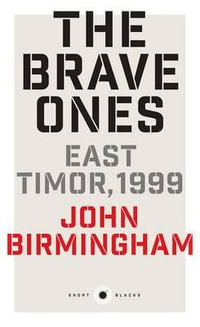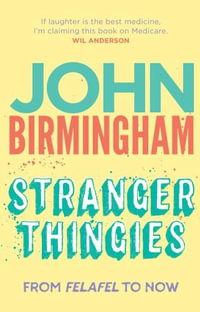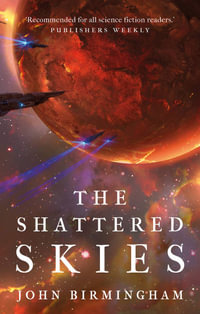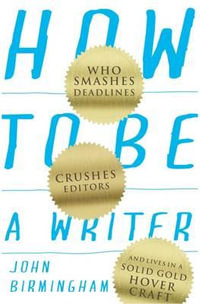
John Birmingham
"I write for food"
John Birmingham is the author of the cult classic He Died With a Felafel in His Hand, the award-winning history Leviathan, Without Warningand the trilogy comprising Weapons of Choice: World War 2.1, Designated Targets: World War 2.2 and Final Impact: World War 2.3. His latest novel is After America.
Between writing books he contributes to a wide range of newspapers and magazines on topics as diverse as biotechnology and national security. Before becoming a writer he began his working life as research officer with the Defence Department's Office of Special Clearance and Records.
Follow John Birmingham on Twitter
If you ask him nicely, he might even answer your questions, but he will probably not read your manuscript. He's very lazy.
Despite working his way to the top of the freelancing trade, Birmingham says before Felafel was published in 1994 he was trying to live in Sydney on about $12,000 a year, accumulating the life experience that eventually made him a household name Australia-wide.
"I often wonder what would've happened if either I hadn't written the book or it hadn't been a success," he said.
"And it wasn't a success for six months. For six months it just died in the arse really. It wasn't that nobody would buy it, the shops wouldn't even stock it. Poor old Michael Duffy looked like he was going to do his dough cold, and then for whatever reason it began to sell, and then it took off and exploded.
"But I guess I do know what the alternative would have been. I would have ended up like some of my writer friends who are really struggling to get by, selling fudge at the markets on the weekends to pay their electricity bill.
"You can do that stuff when you're in your 20s and you're single and childless and have no-one to look after or to blame but yourself, but once you enter a serious relationship and start having kids then all of a sudden there are other people depending on you and the equation gets pretty f***ing grim very quickly.
"So I actually don't care to think about the downside alternatives, what would've happened if Felafel wasn't written or just came out and died, which is the fate of most books."
Between writing books he contributes to a wide range of newspapers and magazines on topics as diverse as biotechnology and national security. Before becoming a writer he began his working life as research officer with the Defence Department's Office of Special Clearance and Records.
Follow John Birmingham on Twitter
If you ask him nicely, he might even answer your questions, but he will probably not read your manuscript. He's very lazy.
Despite working his way to the top of the freelancing trade, Birmingham says before Felafel was published in 1994 he was trying to live in Sydney on about $12,000 a year, accumulating the life experience that eventually made him a household name Australia-wide.
"I often wonder what would've happened if either I hadn't written the book or it hadn't been a success," he said.
"And it wasn't a success for six months. For six months it just died in the arse really. It wasn't that nobody would buy it, the shops wouldn't even stock it. Poor old Michael Duffy looked like he was going to do his dough cold, and then for whatever reason it began to sell, and then it took off and exploded.
"But I guess I do know what the alternative would have been. I would have ended up like some of my writer friends who are really struggling to get by, selling fudge at the markets on the weekends to pay their electricity bill.
"You can do that stuff when you're in your 20s and you're single and childless and have no-one to look after or to blame but yourself, but once you enter a serious relationship and start having kids then all of a sudden there are other people depending on you and the equation gets pretty f***ing grim very quickly.
"So I actually don't care to think about the downside alternatives, what would've happened if Felafel wasn't written or just came out and died, which is the fate of most books."








